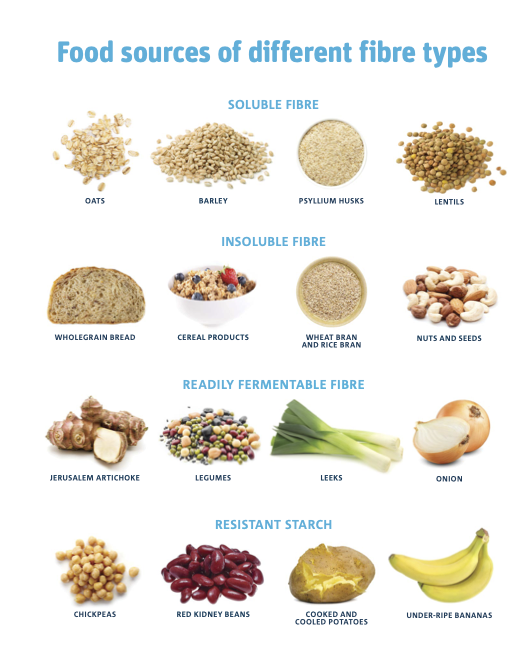Food and mood: What to eat for mental wellbeing

You eat a healthy diet in order to nourish your body – to keep your heart healthy, fuel your muscles and prevent chronic disease. But the importance of keeping your brain and mind well-nourished is often overlooked.
Mental health conditions, like depression, anxiety and stress, are partly caused by non-lifestyle factors like genetics and environment. But lifestyle factors – like physical activity, sleep and diet – can also contribute to mental health conditions or worsen their symptoms. The good news is these behaviours can be modified and controlled.
So, how does nutrition affect brain health, and what should you eat to support your mental wellbeing?
Feed your gut happy
The gut is a pretty big deal. Its role in your body is to do far more than just digest what you eat; it prevents harmful substances from reaching the rest of your body, it houses most of your immune system, and it has a close relationship with your brain.
The gut and its trillions of microorganisms, called the microbiota, also produces over 80% of your body’s serotonin – the hormone that moderates your mood and happiness. Low levels of serotonin leads to low moods and depression.
While gut research is still in its infancy, the consensus on how to keep it healthy is to maintain a diverse microbiota – lots of different types of microorganisms – by eating foods high in fibre. Consuming a mix of soluble fibre, insoluble fibre and readily fermentable fibre, as well as resistant starch is recommended.
Eat more: Vegetables, fruit, whole grains, nuts, seeds and lentils.

Nutrition essentials
In the same way that eating lots of vitamin and mineral-rich foods benefits your physical health by warding of disease, making your skin glow and supporting your organs, they also offer great benefit to your brain and your mood.
Research shows that diets low in micronutrients like omega-3 fatty acids, B vitamins, magnesium, iron and zinc are associated with higher levels of depression and poor cognitive functioning.
CSIRO Total Wellbeing Diet meal plans have been designed to help you lose weight and get all the nutrients you need for optimal health and wellbeing. See which meal plan will work best for you.
A 2019 study in the journal of Psychosomatic Medicine also mentions the link between diets high in polyphenols, a type of antioxidant, and reduced rates of depression. Inflammation in the body is believed to be one of the biological causes of depression. Antioxidants, like those found in colourful fruits and veggies, help to reduce inflammation. A sustained intake of antioxidant-rich foods could play a role in the prevention of mental health conditions.
Eat more: Oily fish (salmon, sardines, barramundi), eggs, nuts, seeds, vegetables, fruit and whole grains.
Tip: When eating fruits and vegetables, remember to “eat the rainbow”. Different coloured produce will have different antioxidants in them, so eating a range of colours will ensure you get a whole range of plant nutrients!
Foods to avoid
Eating a whole lot of processed, high sugar foods and foods high in saturated fat (think cookies, cakes, sausages, bacon) usually leaves your body feeling pretty sluggish. These foods can also have the same effect on your brain.
The effects of poor nutrition on mental health can be felt immediately: brain fog, poor concentration and memory issues. Long term, diets high in saturated fats and refined sugars stunt the growth of protective brain proteins, according to the Food and Mood Centre at Deakin University.
Processed foods that are high in added sugars and saturated fat also cause inflammation in the brain. These types of foods are also particularly gut-unfriendly, and lead to the growth of “bad” bacteria in your gut.
Eat less: Processed foods high in added sugars and saturated fats, refined carbohydrates (white bread, white pasta) and processed meats (sausages, bacon).
Weight loss and mental health
If you’re overweight or obese, eating a healthy and balanced diet for weight loss can also support your mental wellbeing. Obesity and depression have been shown to have a bidirectional relationship, that is, obesity can increase the risk of depression, while depression can increase the risk of obesity.
In a survey of over 3,000 CSIRO Total Wellbeing Diet members, 46 percent of respondents reported improvements to their mental health conditions after completing the program. Many members also indicated improvements in their general mental wellbeing including their self-confidence, satisfaction, mood and body image.
What to eat to support your mental health:
- Eat a diet that is rich in a variety of plant foods including fruits, vegetables, whole grains, nuts, seeds and legumes.
- Eat oily fish 2 to 3 times a week.
- Minimise the amount of highly processed food, saturated fat, refined carbohydrates and added sugars in your diet.
If you are experiencing depression and/or anxiety, or think you might be, please seek help from your GP or call:
Lifeline 13 11 14
PANDA 1300 726 306
Beyond Blue 1300 22 46 36
Looking for weight loss motivation, dinner inspiration or exercise ideas? Check out the CSIRO Total Wellbeing Diet blog.
What's Your Diet Type?
Are you a Foodie? A Pleaser? A Battler? Find out with the Diet Types quiz!